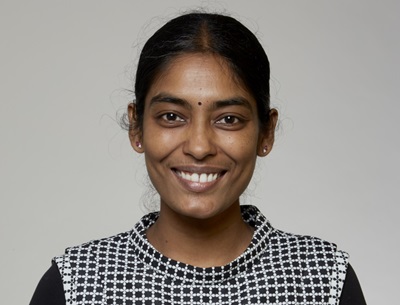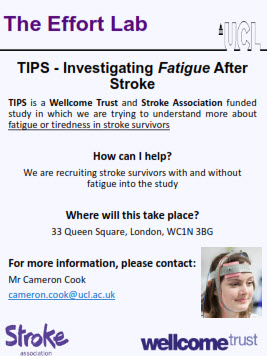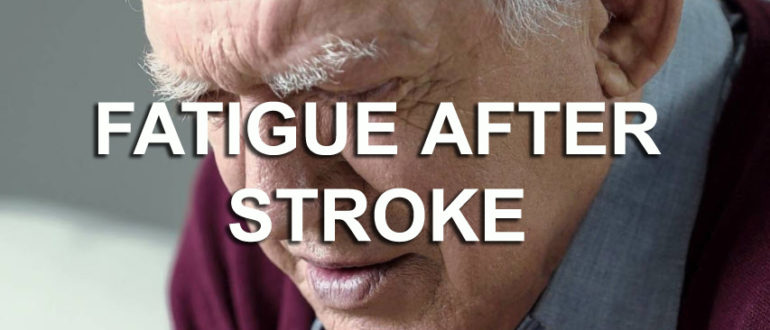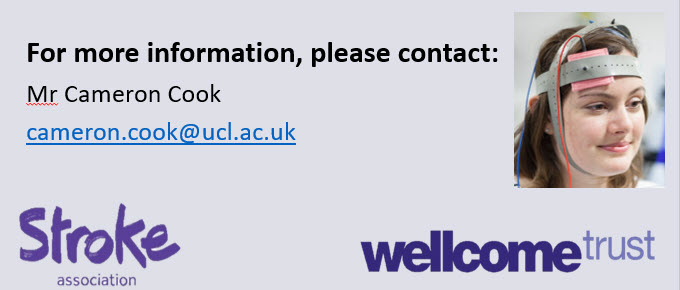Tiredness is something we all experience in our everyday lives. But fatigue is where we experience tiredness which is unrelated to physical or mental exertion, and is not alleviated by rest. Up to 70% of survivors experience fatigue, characterised by overwhelming physical and/or mental tiredness or exhaustion. For many the symptoms dissipate and lessen over time. Others continue to experience these symptoms at a high level many years after their stroke. This is called chronic fatigue.
It is a condition which can greatly impact upon the quality of an individual’s life, making everyday tasks feel overwhelming and unachievable, or just plain exhausting.
Previously, it was thought that patients who experience depression post-stroke were fatigued as a result of their mental health, whereas it is now highly possible that the inverse relationship may, in fact, be true. Fatigue may often be the cause, or a significant contributing factor, of depression.
There is currently no clinical method for diagnosing fatigue, and no treatment is available to alleviate the condition.
 Research into fatigue is at its very early stages. Work to contribute towards a treatment has now been spearheaded by Dr Anna Kuppuswamy, the lead researcher on the project.
Research into fatigue is at its very early stages. Work to contribute towards a treatment has now been spearheaded by Dr Anna Kuppuswamy, the lead researcher on the project.
Her study aims to further general understanding of how fatigue works in the brain, and whether or not it can be alleviated. The goal for the future is to be able to diagnose and treat fatigue effectively, so that no-one need experience its debilitating effects.
So, how can you help?
STROKE SURVIVORS EXPERIENCING HIGH LEVELS OF FATIGUE –
Please come to help Dr Kuppuswamy’s Team test a new intervention for fatigue!

The UCL study would involve three visits to 33 Queen Square to complete some computer-based tasks, as well as receiving some non-invasive brain stimulation.
The aim of the intervention is to test whether some of this stimulation can have a positive impact on the self-reported extent  of fatigue; at this stage, the impact may not be greatly significant or long-lasting but, as mentioned, the research is at the early stages and the goal is longer-term.
of fatigue; at this stage, the impact may not be greatly significant or long-lasting but, as mentioned, the research is at the early stages and the goal is longer-term.
The sessions would not be particularly intensive, as the researchers are particularly understanding of how challenging it can be to live with fatigue. The minimum is one visit.
STROKE SURVIVORS – come and take part in the screening and other tests (please view Study flyer by clicking on thumbnail copy of flyer above)
The Team will use your data as a control to further their understanding of the brains of those who have had a stroke and do not experience fatigue, and those who do experience fatigue.
If you think that you might be interested, please get in touch by emailing cameron.cook@ucl.ac.uk. You will be asked some questions to ensure you are eligible and can safely take part in their study.





6 Comments
Survivor since 6/25/2010!
Fab post Tom, I’ve shared this with a lady I know who may be eligible.
Hello,
I am really interested in the results and hopefully successful outcomes, many of the members of our stroke group suffer from this time to time – with most of these long term suffers.
Please can you inform me of any results when available ?
Thanks and kind regards,
Doug Peacock
Treasurer,
Different Strokes – Northampton exercise group
Different Strokes are a Registered Charity No. 1092168
Thanks Tom,I’ll email Cameron for more info
I will be at UCL for 3 weeks from 11th Feb., for upper limb intensive training. I have taken a copy of the details and intend to speak to the department whilst there. Thanks Tom, a great opportunity to explore options further!
This is so exciting! Thanks Tom for keeping everyone in the loop.